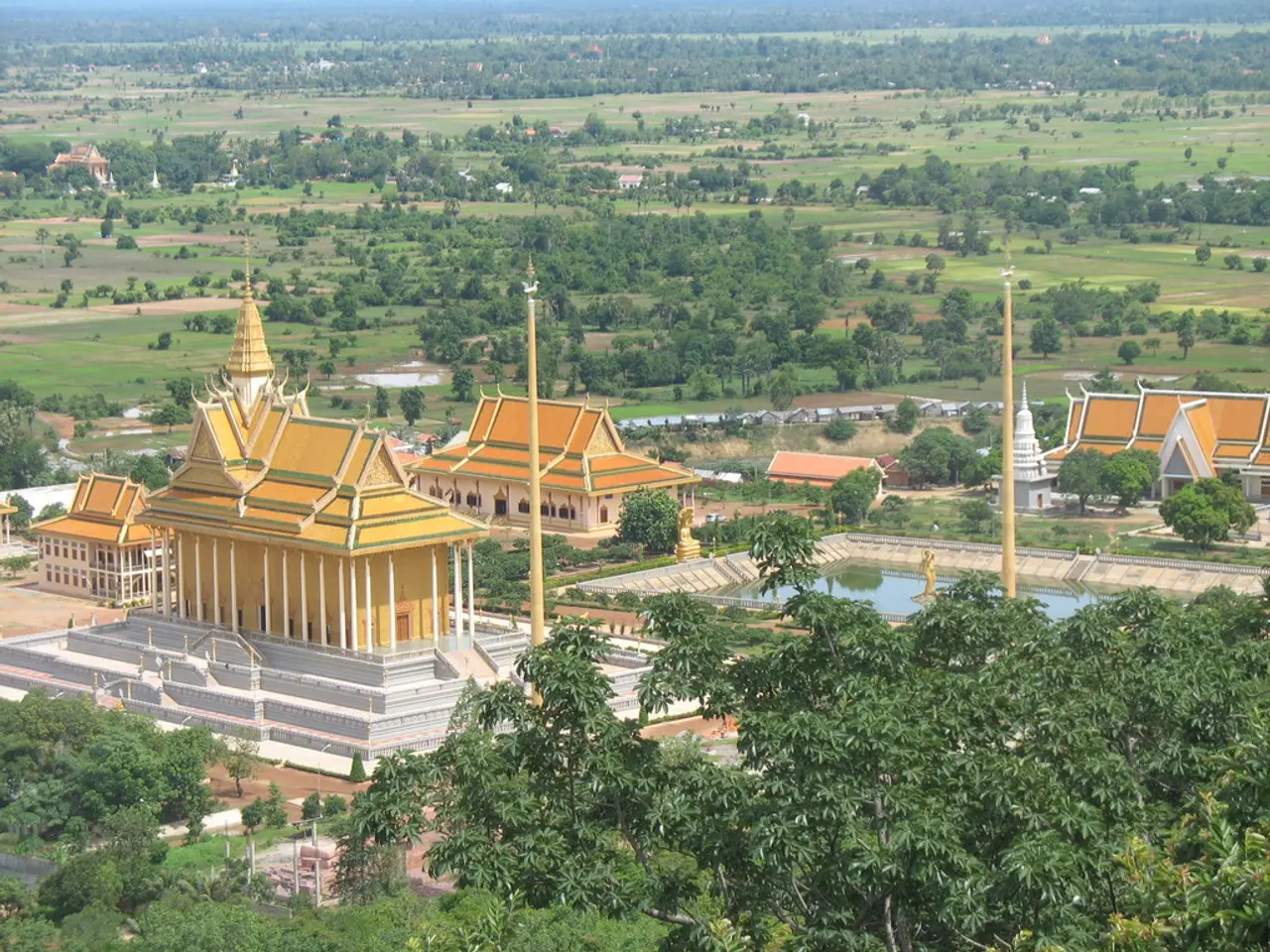The victors of the OpenAI contest hold the answer to where archaeologists ought to excavate next.
In a groundbreaking development, a three-person team named "Black Bean" has emerged victorious in the OpenAI to Z Challenge, a public competition aimed at exploring satellite images and remote sensor data for signs of undiscovered archeological sites. The Amazon rainforest, spanning nine countries and home to hundreds of Indigenous groups, is too vast for traditional archeological survey, making this competition a beacon of hope in unearthing hidden treasures.
The winning team used cutting-edge technology, including deep learning models trained on various publicly available datasets, such as remote sensing LiDAR data, satellite images from Google Earth Engine, and NASA's digital elevation models. Their efforts paid off, as they discovered 67 distinct patches in the Amazon, each measuring about a square mile, that could contain ancient sites. Many of these areas were clustered along bodies of water.
OpenAI, the company behind the competition, is committed to ensuring all data used in the competition is public and is following local laws and engaging with local institutions to maintain transparency. The company that supported the Black Bean team in their explorations was Microsoft, and the expeditions were conducted using satellite imagery and machine learning technology.
The winning team's work will not only be celebrated but also shared with archaeologists and geologists to refine their predictive model. Machine learning isn't a new tool for explorers of the ancient world, but newer AI models could help uncover previously unknown settlements and tombs beyond established archeological targets.
However, the team is mindful of the potential impact of their discoveries on local communities. Before visiting the sites, they will consider how to avoid disrupting the local communities. Many ancient sites are disappearing due to various factors such as sea level rise, vegetation changes, and human activities.
The first-place winners received a $250,000 cash prize and credits to use premium OpenAI products. As more private companies, particularly those focusing on AI and machine learning, launch similar competitions, archaeologists like Dr. Fisher based at Colorado State University expect to see an increase in the discovery of hidden archeological sites.
Dr. Fisher, along with Dr. Parcak, believes that AI is not going to replace archaeologists, but rather scale what remote sensing scientists have been using for 50 years. AI, they argue, will aid in the discovery of sites that would otherwise remain hidden, allowing archaeologists to focus on the intricate details of these discoveries.
The competition, however, has not been without controversy. Brazil's Indigenous ministry demanded that OpenAI halt the competition until it clarified its aims, according to Science. OpenAI, in response, has been engaging with local institutions to ensure that their work respects and protects the rights and interests of Indigenous communities.
OpenAI, a company that has drawn criticism for popularizing generative AI, has responded to these concerns by convening a mental health advisory group and improving how its models respond in sensitive interactions. This commitment to ethical practices and collaboration with local institutions bodes well for future archaeological discoveries in the Amazon rainforest.
The Amazon rainforest, with its dense vegetation and rich history, continues to hold countless secrets. The discoveries made by the Black Bean team are just the beginning, and with continued collaboration between technology companies, archaeologists, and local communities, we can expect many more hidden treasures to be uncovered in the years to come.
Read also:
- Peptide YY (PYY): Exploring its Role in Appetite Suppression, Intestinal Health, and Cognitive Links
- Toddler Health: Rotavirus Signs, Origins, and Potential Complications
- Digestive issues and heart discomfort: Root causes and associated health conditions
- House Infernos: Deadly Hazards Surpassing the Flames








